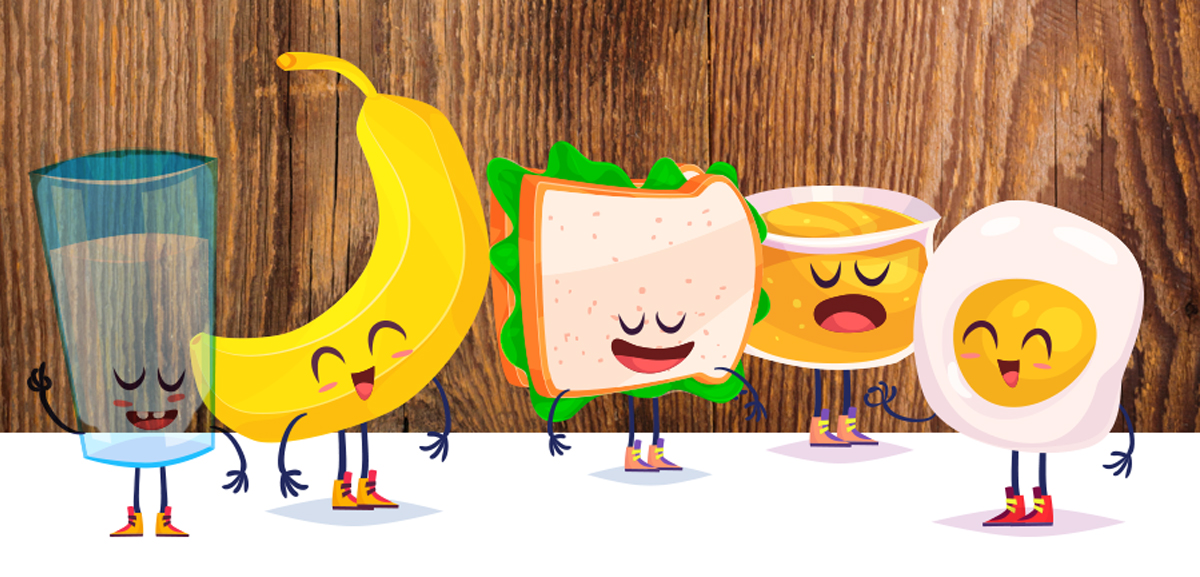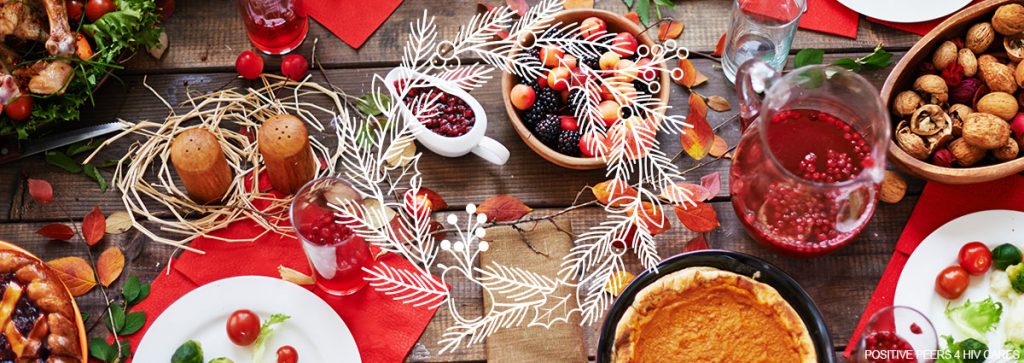
By: Jennifer McMillen Smith, LISW-S, HIV Social Worker at MetroHealth Medical Center and medically reviewed by Ann K. Avery, MD, Infectious Disease Physician at MetroHealth Medical Center
Sweets, meats, and irresistible treats: That’s what holiday meals are made of.
But how do you stay on a nutritious diet when you’re bombarded with the temptation to overeat? Before we get to the nutritious twists on holiday meals, let’s talk about the basics of HIV and nutrition:
- Eat less meat, avoid fried foods, and cut down on visits to fast-food joints.
- Eat more fruits and vegetables: They’re packing more nutrition in each bite than meats.
- Snack sensibly: It’s OK to nibble now and then, but don’t go too hard on the sweets and the salty stuff.
- Cook your meals: This is tough for a lot of people these days, but if you cook yourself, you know what’s going into your meals.
- Eat less before and after big holiday get-togethers, and take some walks or go to aerobics class to burn off extra calories.
Most holiday meals — plus wine, beer, and before-and-after munching — have enough calories to last you for two days, so it pays to plan ahead and adjust your eating habits. Whether you’re still living off your Thanksgiving leftovers or gearing up for Christmas and New Years’ feasts, we’ve got some quick tips to stay healthy this holiday season:
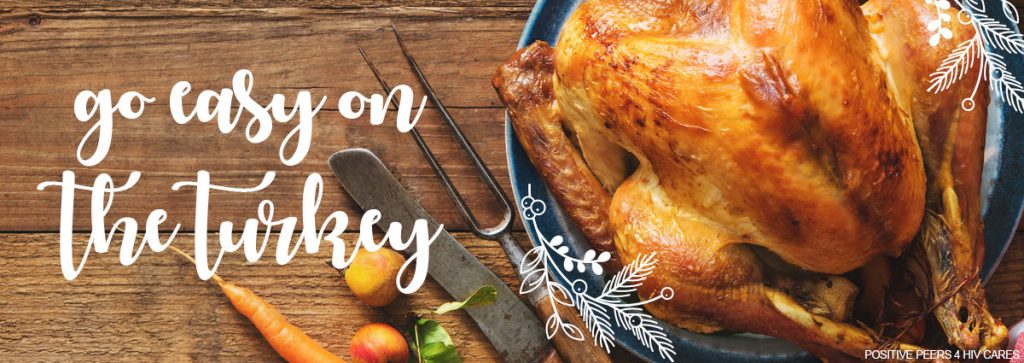
1. Take it easy on the turkey
Turkey should never be fried. And you really shouldn’t eat much of it — a couple of slices about the size of your hand at the most. And don’t eat the skin: It’s all fat and zero nutrition. White meat has less fat than dark meat, but dark meat has more nutrients, so think about mixing them up.
Put your turkey leftovers in the freezer and thaw out only small portions for sandwiches and other after-the-holiday meals.
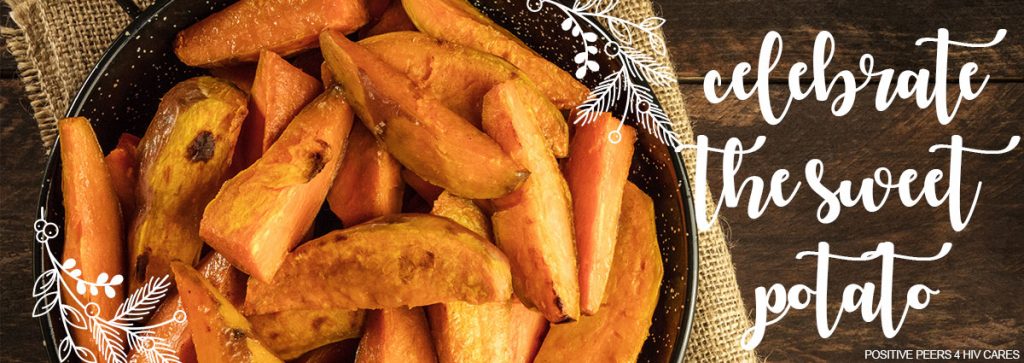
2. Celebrate the sweet potato
Roasted or baked sweet potatoes are naturally sweet, tasty, and nutritious on their own without a lot of extra flavoring. They don’t need mass quantities of fattening butter and sugar-rich toppings like melted marshmallows. And you can add a crunchy topping with crushed graham crackers, walnuts, or pecans.
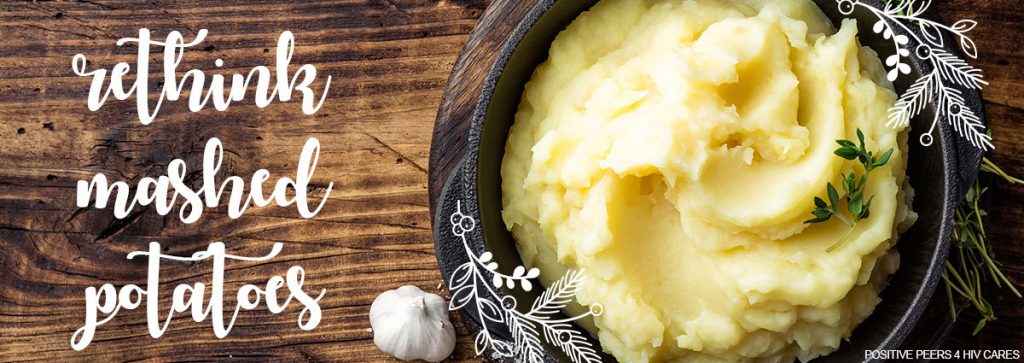
3. Rethink the mashed potato
The best approach to the potato is to bake it and lightly season it with olive oil and spices rather than butter or cheese. Mashed potatoes usually require extra milk and butter that add extra calories.
If you can’t live without mashed potatoes, do a mashup with baked cauliflower: Instead of baking the equivalent of two potatoes, bake one potato and fill out the rest with cauliflower mashed into it. Season it well and you’ll have a veggie-rich side dish.
Come join our private, stigma-free, supportive community.
Health management tools with medication & appointment reminders.
Social networking in a community conversation & private chats.
4. Take a shorter ride on the gravy train
Gravy made from turkey fat is one of the best things about the holidays — but it’s also one of the fattiest things on your table. If you use gravy, just go easy on it.
One way to reduce the calories in gravy is to switch from regular milk to almond milk or coconut milk. If you roast your turkey with carrots or onions in the bottom of the pan, try mixing them into your gravy for more thickness and a touch of veggie flavor.
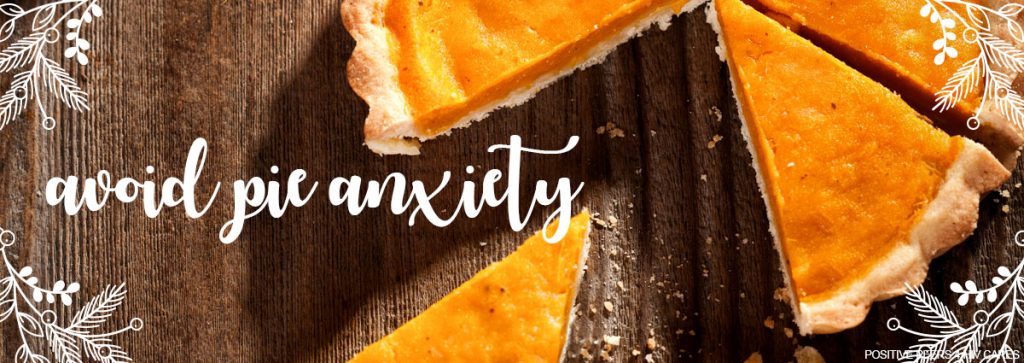
5. Avoid pie anxiety
Pumpkin pie is pumped with nutrition — as long as you avoid pairing it with whipped cream or ice cream. Have a side dish of fresh strawberries or cranberries instead. Rather than whole pies, think about smaller tarts made with apple or pears that can be eaten in moderation. The pecans are the best thing about pecan pie, so enjoy it only in small slices.

6. Freeze the sweets
Most holiday cookies will keep fine in the freezer. If you stash most of your cookies in the freezer and thaw only one or two a day, you can extend your treat supply well past New Years without giving up on the best stuff altogether.
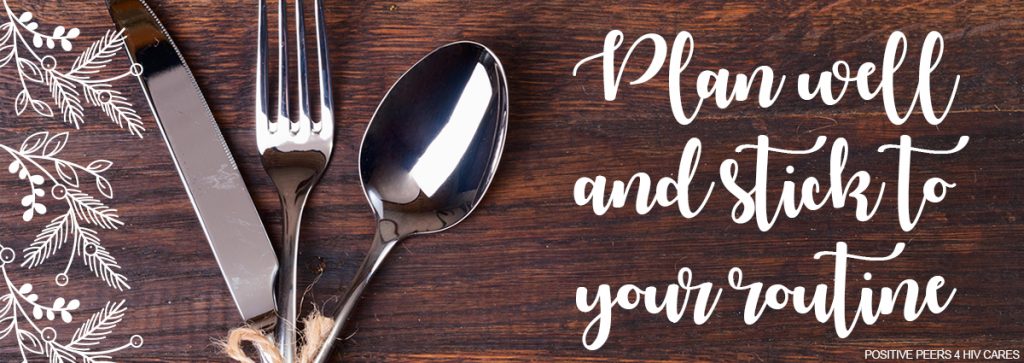
7. Plan well and stick to your routine
HIV meds require you to adopt a routine so you take your dosage at the right time every day. You can apply the same philosophy to your holiday eating: Give yourself a plan, set some goals, and stick to them.
It’s important not to starve yourself — that usually causes overeating later on. More than anything, pay attention to what you’re eating (and drinking) and make an effort to avoid overdoing it.
More tips on healthier holiday eating: NC Research Campus | Bon Appetit | Healthy Living Made Simple
Related Blogs:

